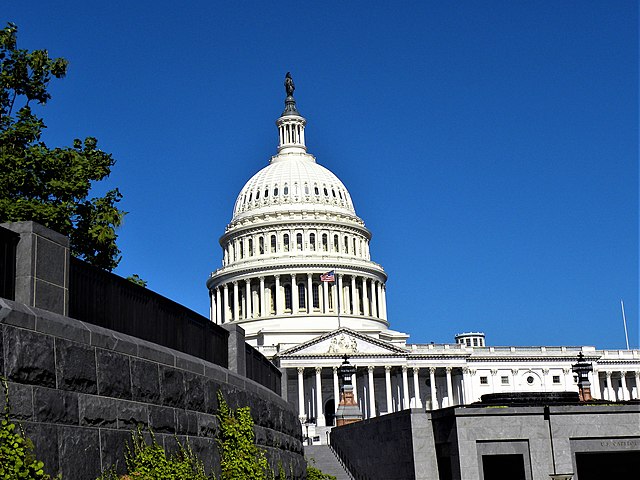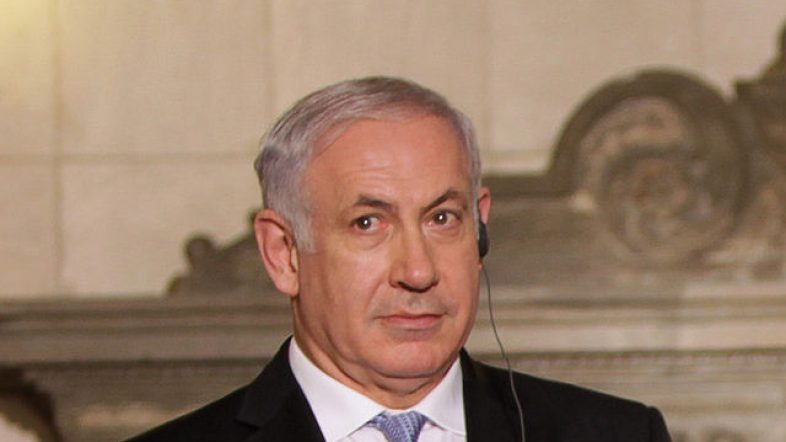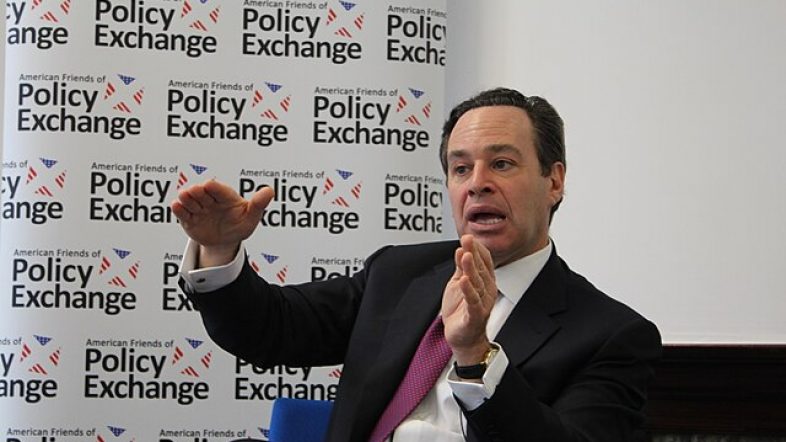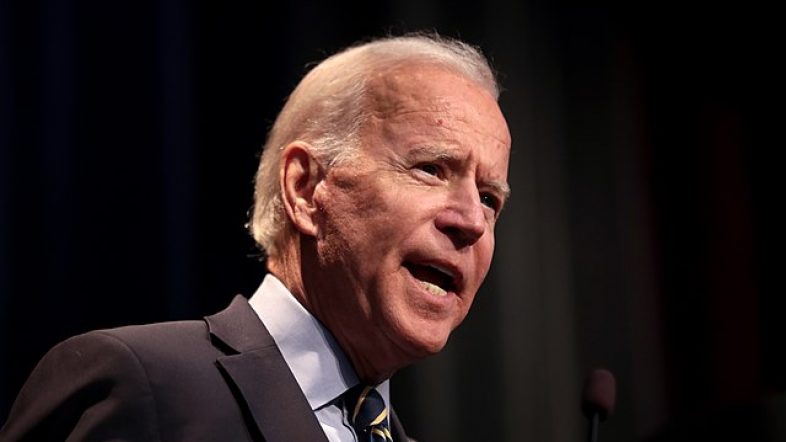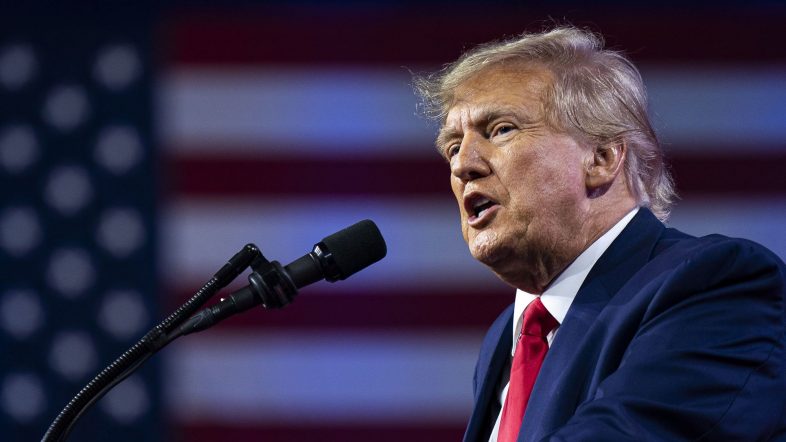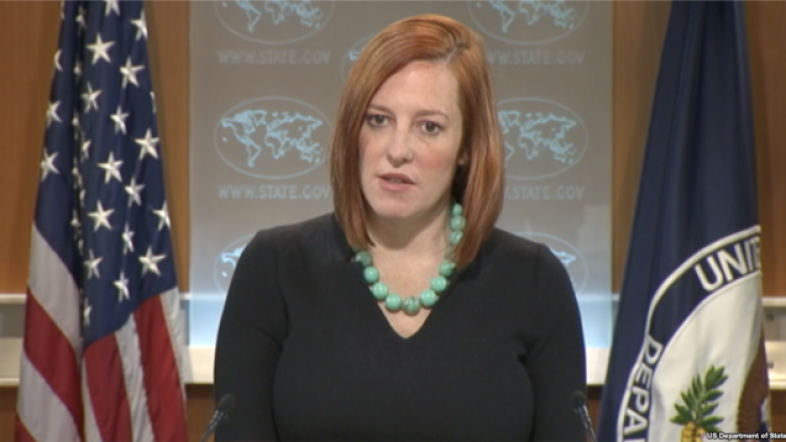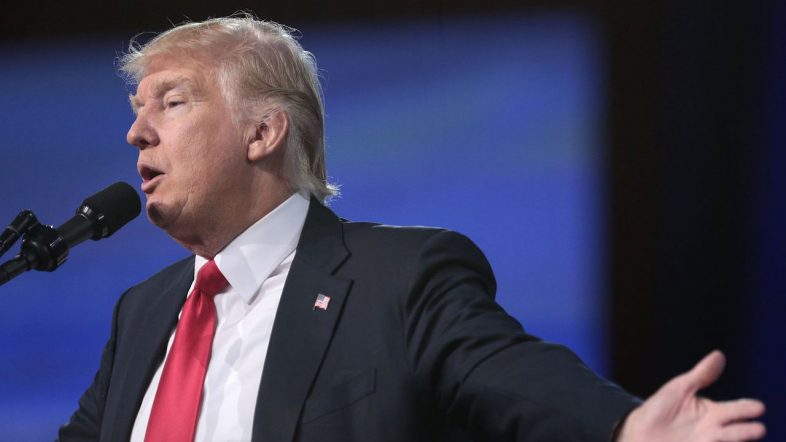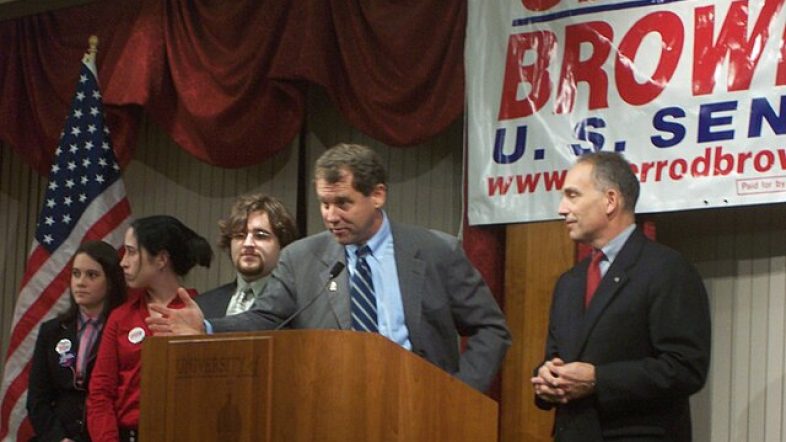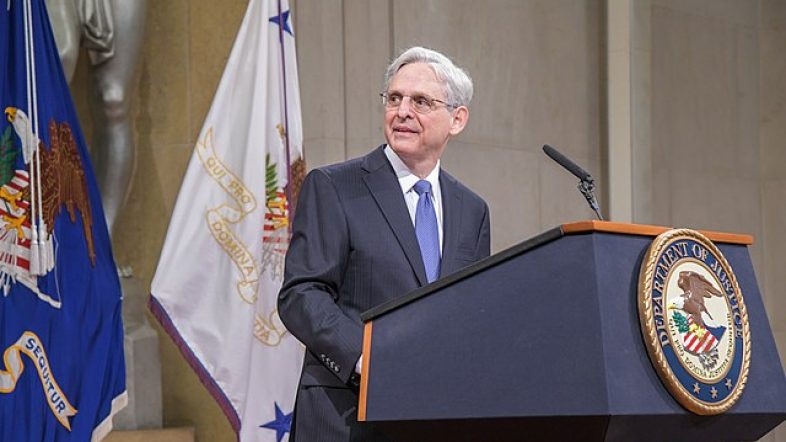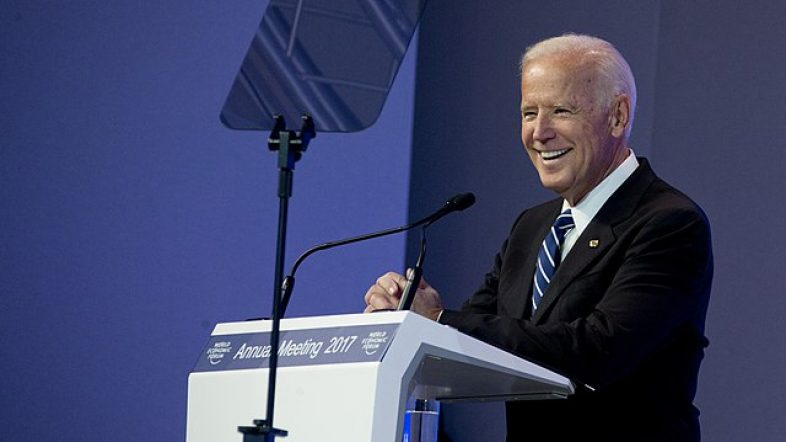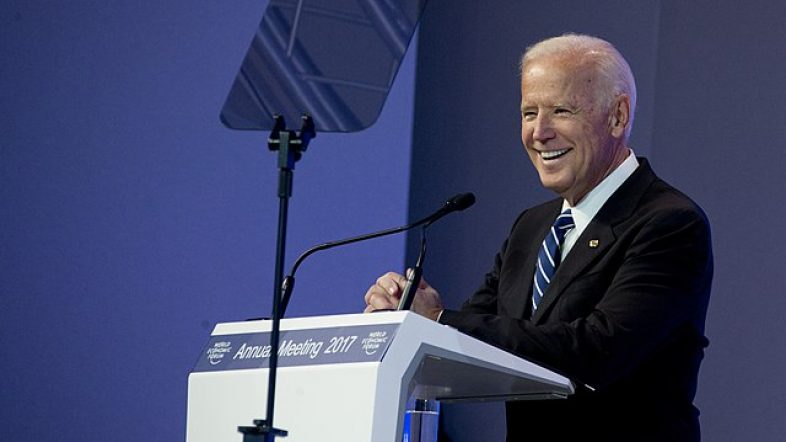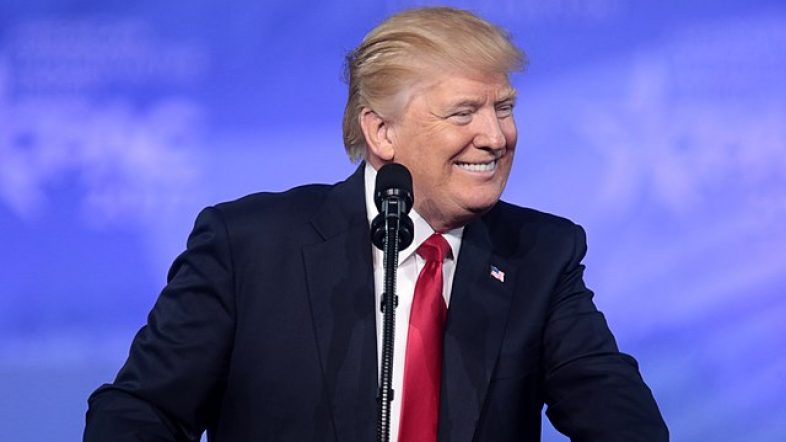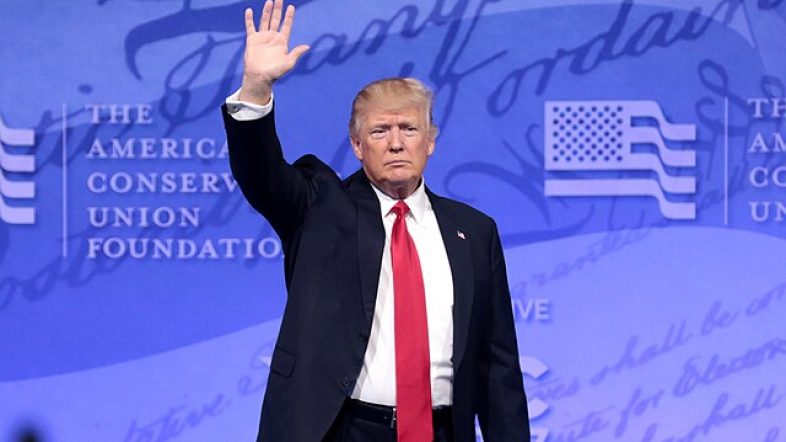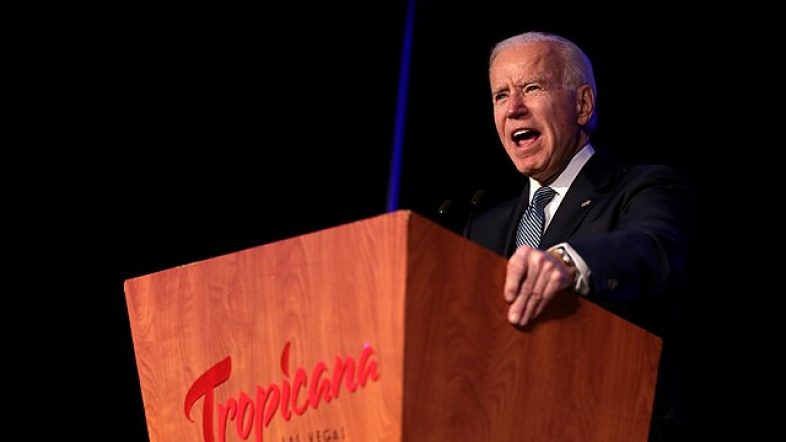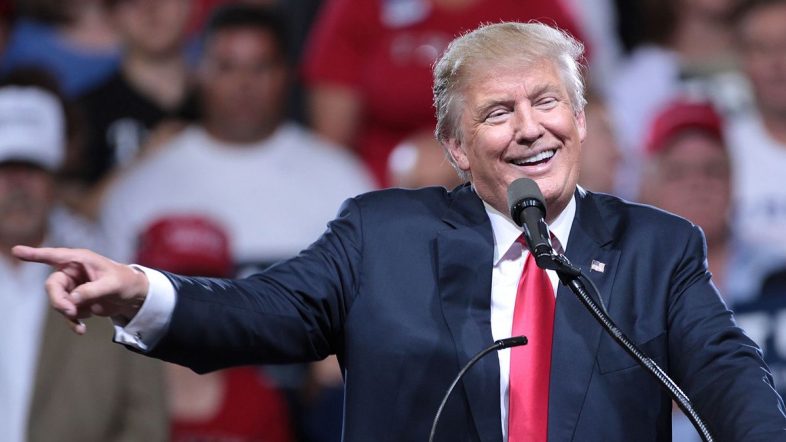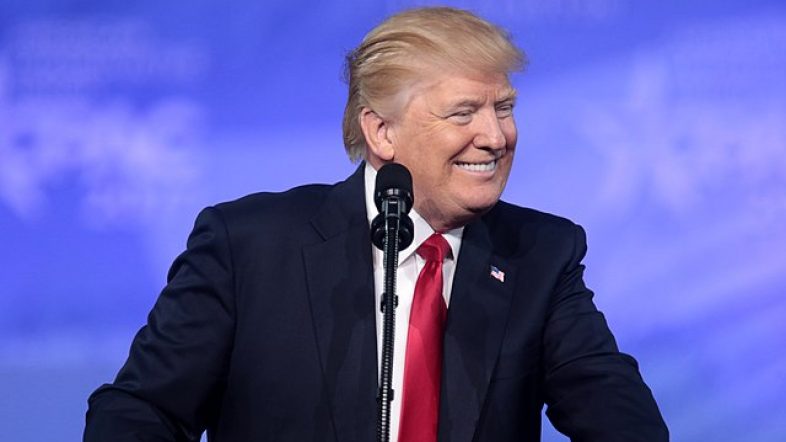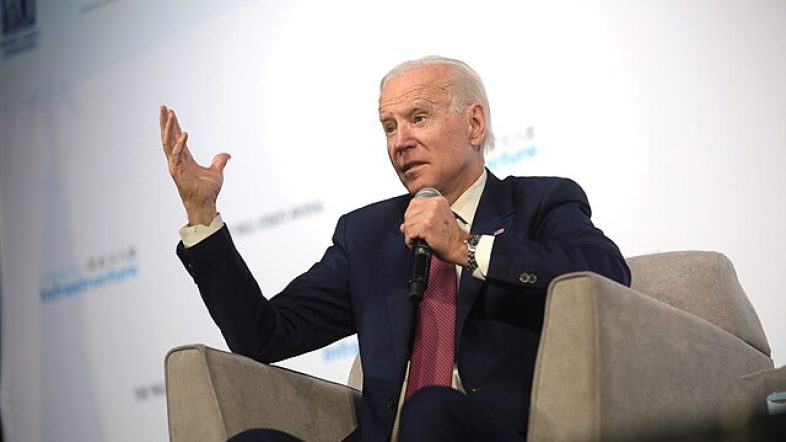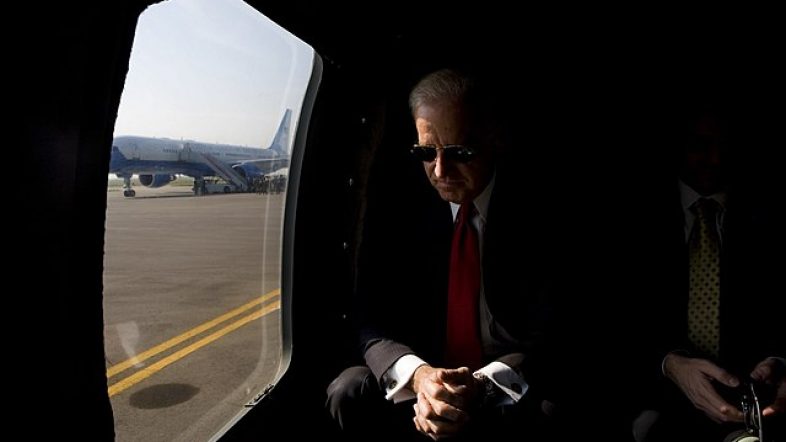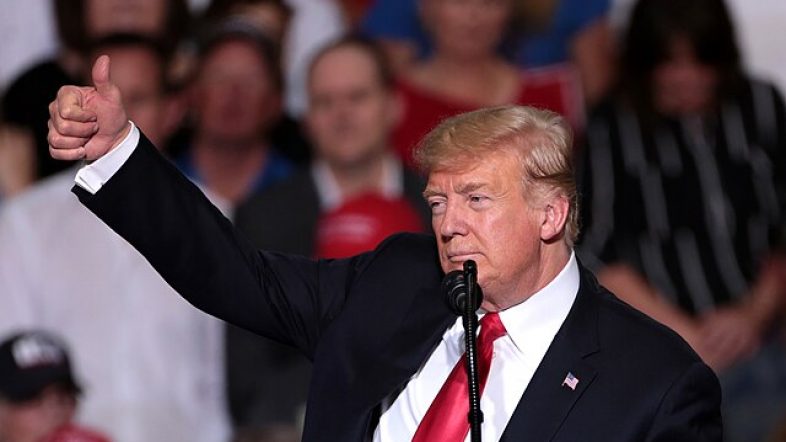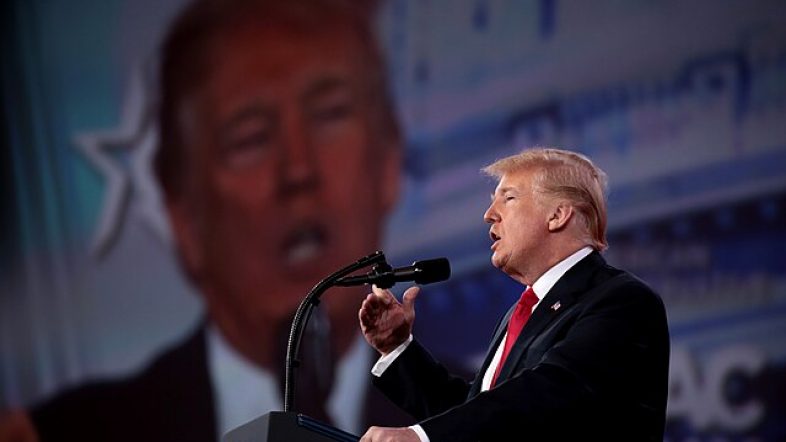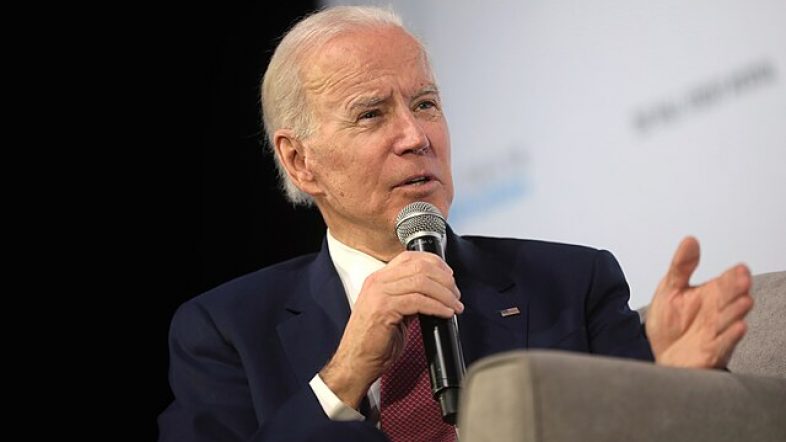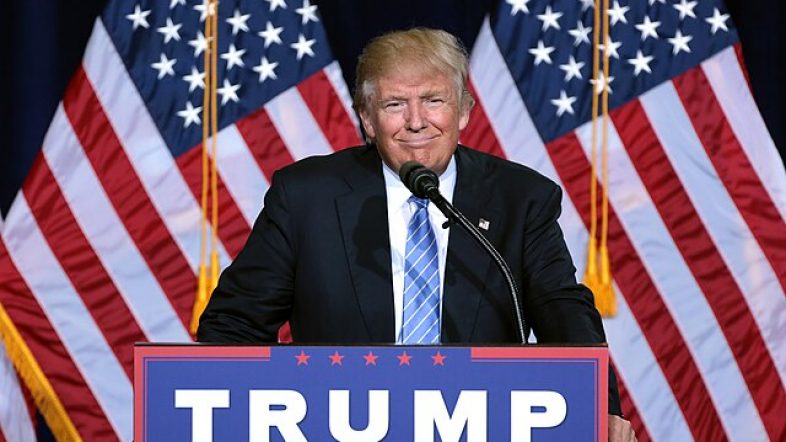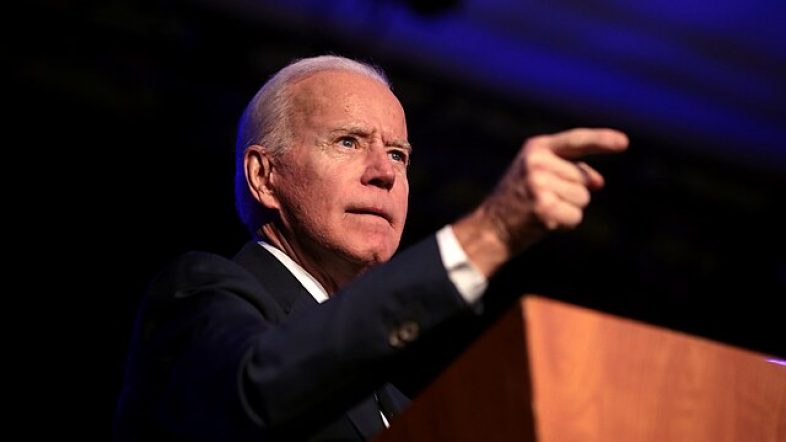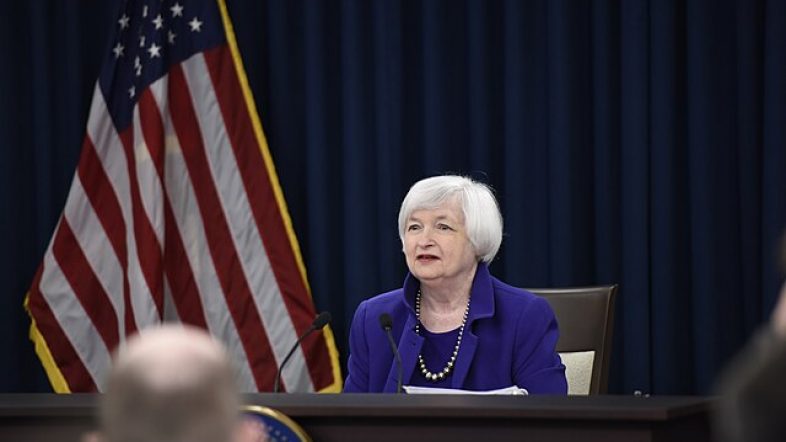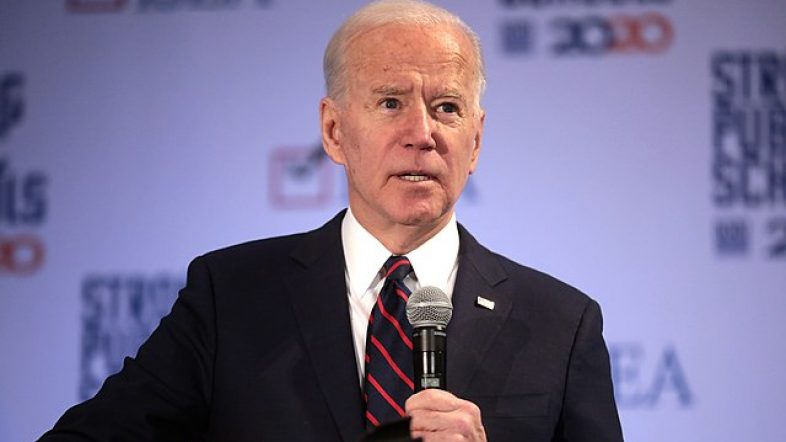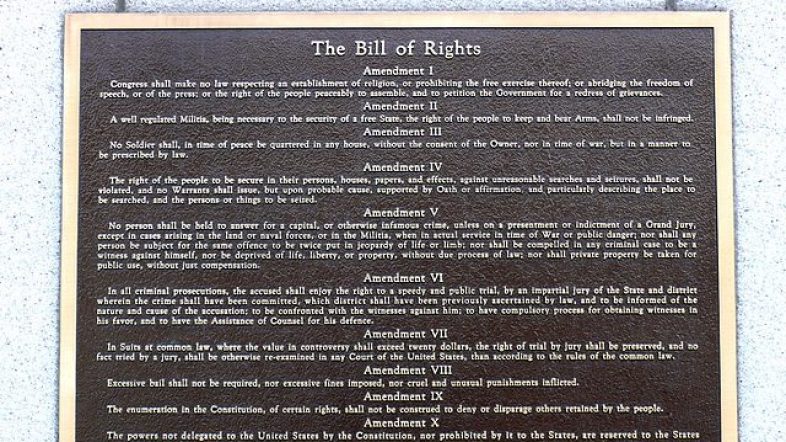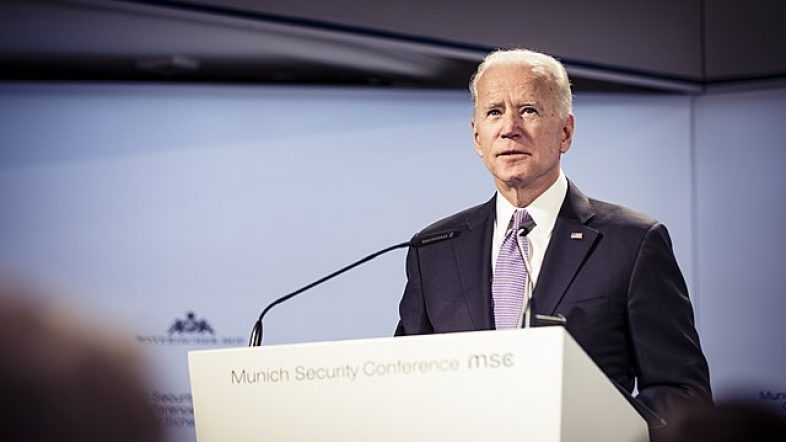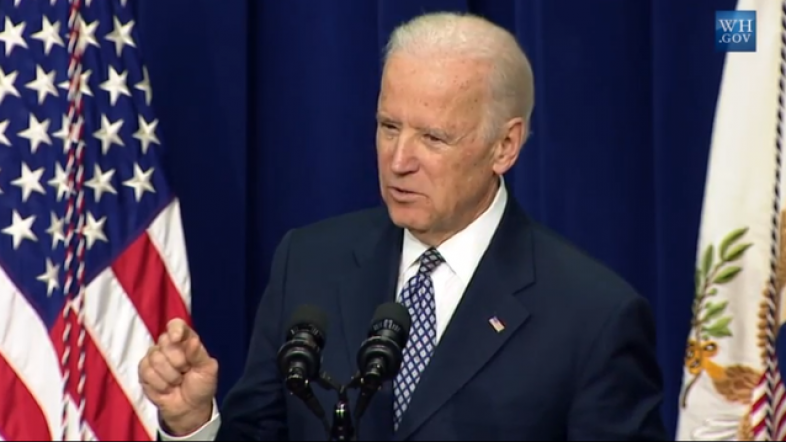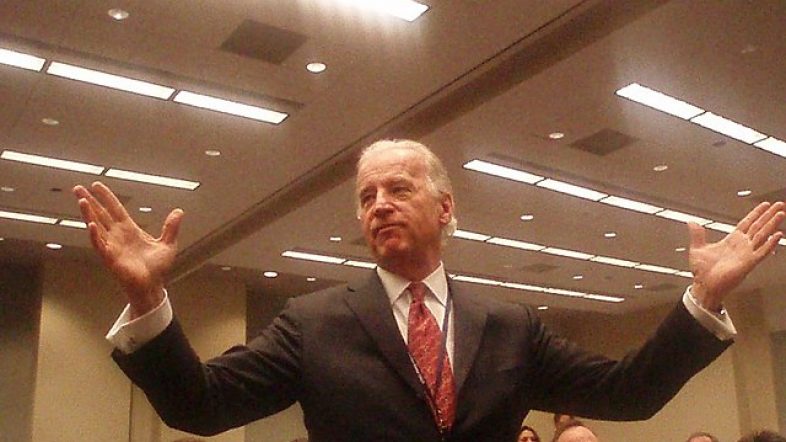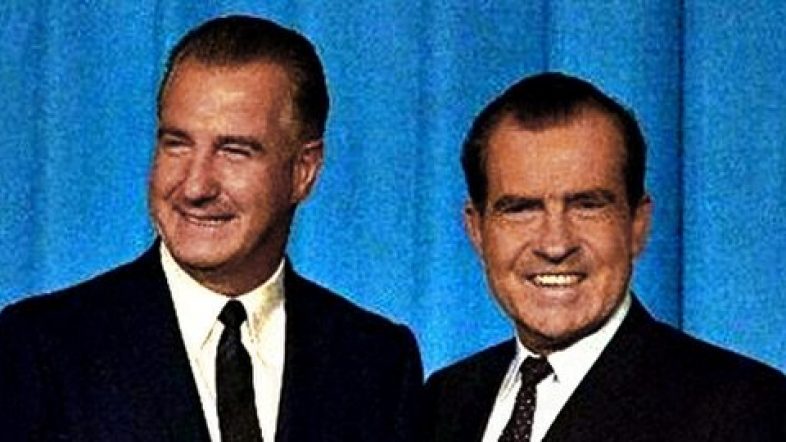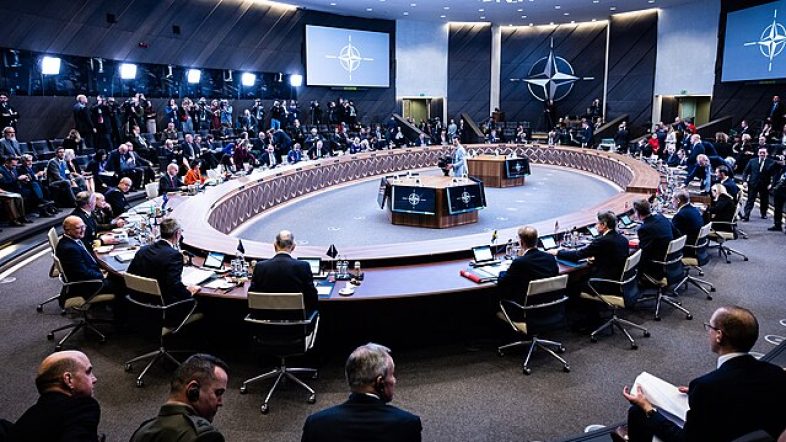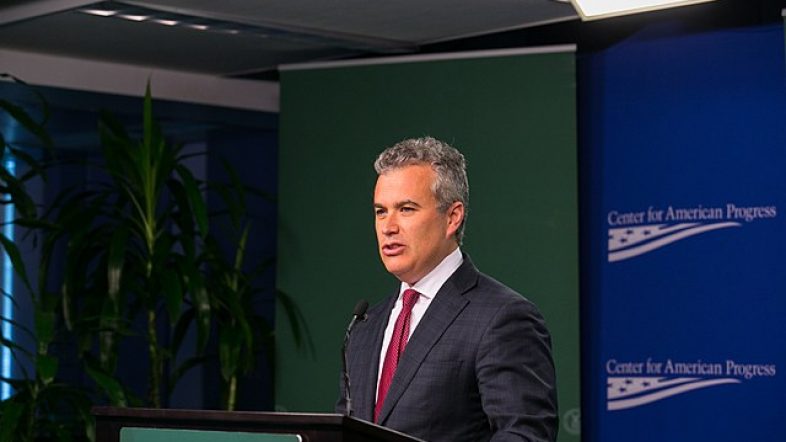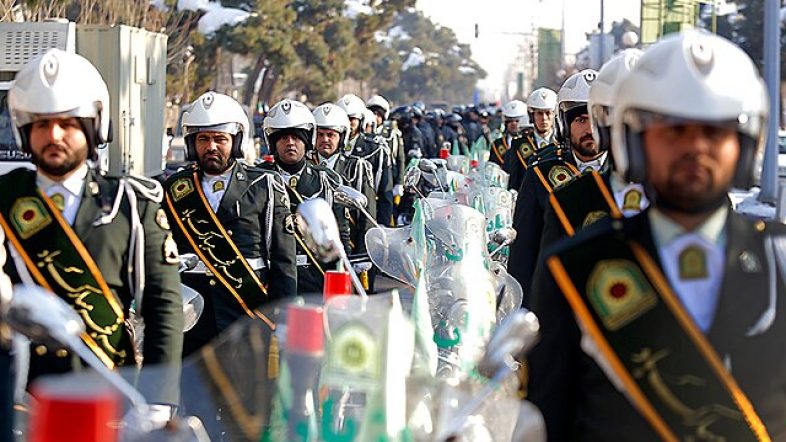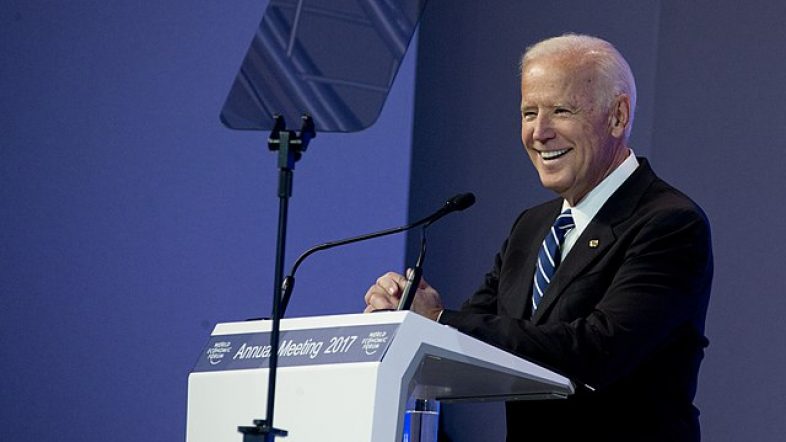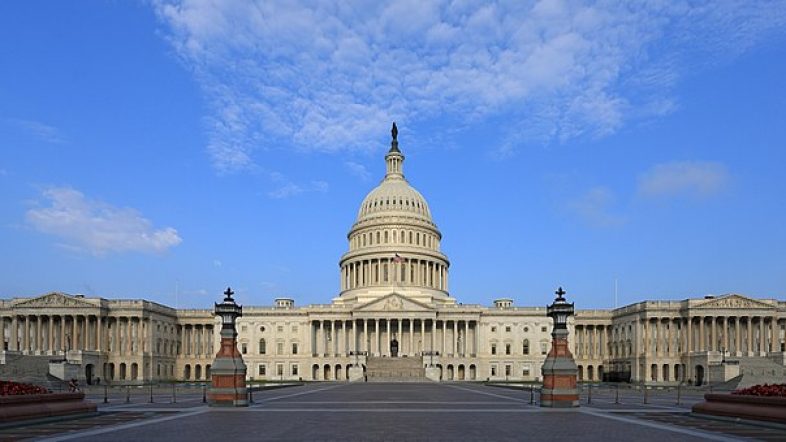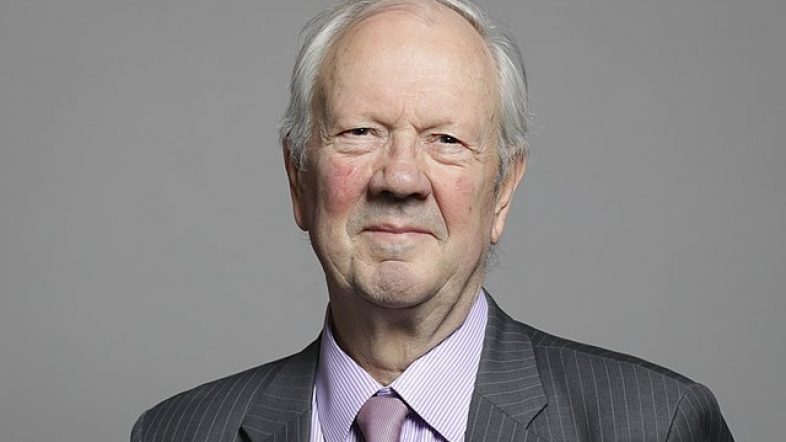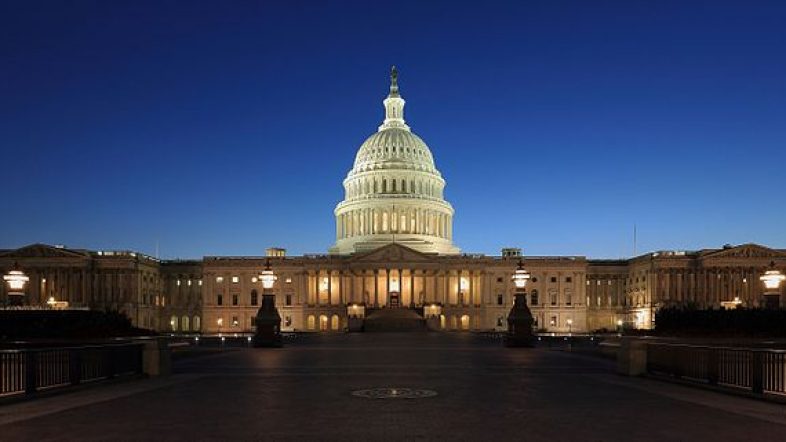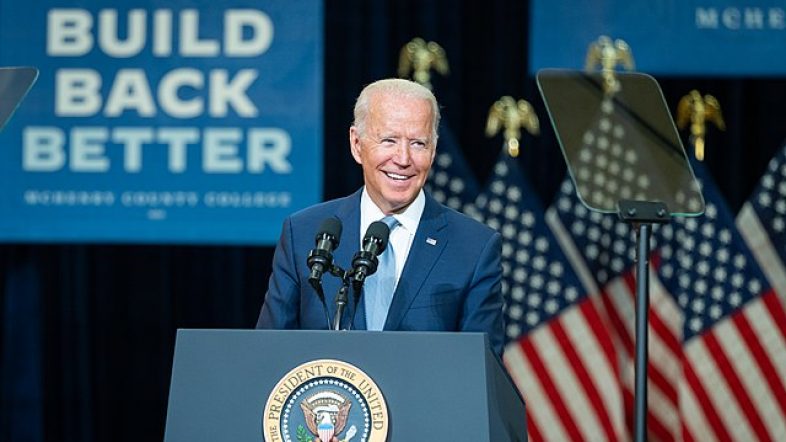There’s a lot to unpack in Erik Prince’s sprawling 4,600 word May 2 opinion piece in the Daily Caller entitled, “Neocons Almost Killed America. Here’s How Patriots Can Fix It.” So, I’ll take on his three contentions in two parts, starting with the areas we find some agreement on: that America’s post-Cold War foreign policy has been a disaster and U.S. military spending is grossly inefficient.
We’ll save Prince’s third argument, that U.S. foreign policy missteps pushed Russia into China’s arms, for a second response.
Prince’s effort is ambitious, and there’s a lot to recommend in it. Viewing it with more granularity, one could reasonably assess that Prince should get credit for batting .400 — which is .400 better than the D.C. defense and foreign policy elite he criticizes.
But when recommending solutions, one must first correctly identify the source of the problems — and here’s where Prince’s analysis shows weakness.
Prince cites the failure of American military interventions since the end of the Cold War in 1991. He correctly assigns the emphasis on nation building as a key reason for failure.
Instead, he says that military intervention, to the extent that it should be used, should take the form of punitive expeditions. In other words, go in, kill those who need killing, and leave the smoking rubble as a warning to others not to mess with America. I agree.
Had we done this in Afghanistan after 9/11, and even in Iraq, for violating UN resolutions that put the lives of U.S. military personnel at risk, America would have saved thousands of servicemembers’ lives and limbs, and some $3 trillion — of which, perhaps half, might have been used to modernize our military to better deter the People’s Republic of China.
But in critiquing America’s post-Cold War interventions, Prince incorrectly ascribes the string of failures to “neocons” — a group of foreign policy practitioners and theorists who, while they had their time in the sun, have mostly passed from the stage.
During the late Cold War period, neocons referred to Democrat staffers who were anti-Soviet but liberal on domestic policy. As the Democratic Party lurched left during the 70s, neocons largely found themselves without a political home until a few ended up serving in the Reagan administration. Jeanne Kirkpatrick and Richard Perle were among the more prominent neocons, and I had the pleasure of working with Perle during my time as a young Reagan appointee in the Pentagon.
But the impulse to nation build — to see the world more along moral lines than the harsh truth that the reality of culture, history and geography presents — is a temptation America contended with long before the advent of the post-Cold War era.
It’s why when future president John Quincy Adams, then secretary of State, spoke to the U.S. House of Representatives in 1821, he admonished that America should go “not abroad, in search of monsters to destroy” but rather be a “well-wisher to the freedom and independence of all” and “the champion and vindicator only of her own.” Adams knew well that a nation founded on the principles of liberty would face a powerful tug to intervene abroad for moral reasons–to destroy monsters.
Woodrow Wilson’s push to create the League of Nations and include it in the Treaty of Versailles is a clear example that became known as the “Wilsonian” approach to foreign policy. Understanding that America, as a nation founded on the principle that government exists to secure rights, rather than simply resting on blood and soil, naturally tilts towards viewing world affairs through this moral lens, is an important factor for policymakers to consider.
Some 80 years after Wilson’s utopian missteps set the stage for World War II, President Bill Clinton kicked the U.S. into the hyper interventionism that was a feature of post-Cold War American foreign policy. Rather than viewing the military as an insurance policy, best used to deter war, the Clinton administration saw the military as just another part of government — and an expensive one at that — one that some tangible value should be derived from.
This was epitomized by the 1993 exchange between then Secretary of State Madeleine Albright and Gen. Colin Powell, then chairman of the Joint Chiefs of Staff, over whether to authorize U.S. airstrikes during the Balkan crisis. Gen. Powell opposed the idea, suggesting that America should not commit military force until a clear political objective was articulated.
In response, Albright said, “What’s the point of having this superb military that you’re always talking about if we can’t use it?” Powell later wrote, “I thought I would have an aneurysm.”
It was during that Balkan intervention that the U.S. inadvertently bombed the PRC’s embassy in Belgrade in 1999. The paramount leader of the Chinese Communist Party, Xi Jinping, in a May visit to Serbia, said China “should never forget” that mistaken bombing — the Chinese embassy occupied a building that once housed the former Yugoslavia’s military logistics headquarters.
Some analysts claim that the bombing was a “wake-up call” for China and a catalyst for military modernization and a more aggressive foreign policy.
Matt Pottinger, a former Marine who served as President Donald Trump’s deputy national security advisor, observed: “Few Americans realize it, but our leaders who lack military experience tend to be more hawkish than leaders who have served in the military.”
One can readily understand that those who train at the Ivies to gain admittance to the foreign policy clerisy almost unanimously come to view the military, and those who serve in it, as an unpleasant tool, useful, not for theoretical deterrence, but for reshaping the world to their visions.
So, Prince is right about America’s failed interventions, but wrong in ascribing those costly errors to the frequently maligned “neocons.” Rather, a foreign policy driven by moralism is encoded in our national DNA, creating a bias for intervention that must be tempered. Thus, the best and most readily sustained foreign policy — one that may be supported by the American public — blends a cleareyed understanding of national interests with a moral underpinning.
The second major point Prince made in his essay is a call for a more competitive and efficient military procurement process as well as advocating for private sector solutions — some of which, as a leader of a private military services contractor, he could stand to personally benefit from.
Again, Prince is half right.
Prince accuses the defense industry of selling overpriced weapons and profiting off war — an accusation as old as armies. Yet, the U.S. defense industry isn’t particularly profitable.
In the first quarter of 2024, according to SCIMarket, the defense industry averaged a pre-tax net margin of 4.37% over the past 12 months, ranking it 67th among sectors. Even back in 1986-87, just as defense spending peaked in the Reagan-era, aerospace companies had lower than average returns on equity among all industry groupings.
The defense industry went through a painful round of consolidations and layoffs at the end of the Cold War — accelerating a process that began in 1987, the year a Democratic majority was sworn into the U.S. Senate after the 1986 midterms. By 1998, the defense sector had shed 2 million workers, losing 1,000 jobs a day for a period.
By 1993, President Clinton’s new secretary of Defense, Les Aspin, gathered the nation’s prime defense contractors together at a dinner later known as “the Last Supper” to tell them that defense spending was going to continue to fall, now at a faster pace, and that they needed to even more aggressively consolidate the industry to survive.
The industry took the advice to heart and now the U.S. is stuck with a duopoly serving one buyer, a monopsony, for most major weapons projects, leading to an inefficient system.
Added to this challenge are layers of rules and regulations designed to prevent fraud and protect the taxpayer — rules that have been accreted, barnacle-like, since the Civil War. Even so, Defense Department procurements aren’t uniquely prone to being late or overrunning among government projects.
Anyone hear of Boston’s Big Dig? California’s High-Speed Rail? How about the U.S. Capitol Visitor Center?
Most agree that the DOD procurement system suffers from a large bureaucracy, more adept at producing paperwork than weapons. But a big part of the cost overruns are due to adding new requirements to the system being procured.
Sometimes this happens after finding out more as a new technology matures, though it may also be the case that program advocates, in league with contractors, low-ball a barebones program so as to get initial approval. This then often leads to significant reductions in the quantity of systems ordered which, when amortized out over the cost of research and development, appears to make systems cost far more than they do.
It’s not apparent that non-defense industry contractors would fare any better under the current system. And, if brilliant innovators such as Elon Musk or Palmer Luckey were allowed to operate outside of the Pentagon’s elaborate system of reports and rules, then you can be sure that lobbyists, members of Congress and the corporate media would quickly accuse them of fraud, corruption and war profiteering.
What’s needed at the DOD is a significant overhaul of the procurement process, one that would allow new entrants into the field while benefiting incumbents nimble enough to understand the new rules. Thus, the private sector solutions needed are internal to the Pentagon, one of the world’s largest procuring entities.
Further, the Pentagon’s inertia needs complete redirection. Weapons, training, doctrine and force structure aren’t a means to themselves. America’s crushing debt burden and hollowed-out military industrial complex means that every dollar, every weapon, and every servicemember must be optimized to meet the threat and that threat must be properly identified and defined. Nothing else matters.
We have far too many flag officers running a dwindling force. Better to increase pay and weed out the top-heavy rank structure. America needs warriors in uniform — and not the bureaucratic or social justice kind.
Erik Prince’s ideas on military and foreign policy reform are a welcome addition to a long-overdue discussion. As the People’s Republic of China, and their allies and proxies in Russia, North Korea and Iran work to undermine America’s national security, we need a vigorous and serious debate on how to best secure our interests while maintaining peace and prosperity.


